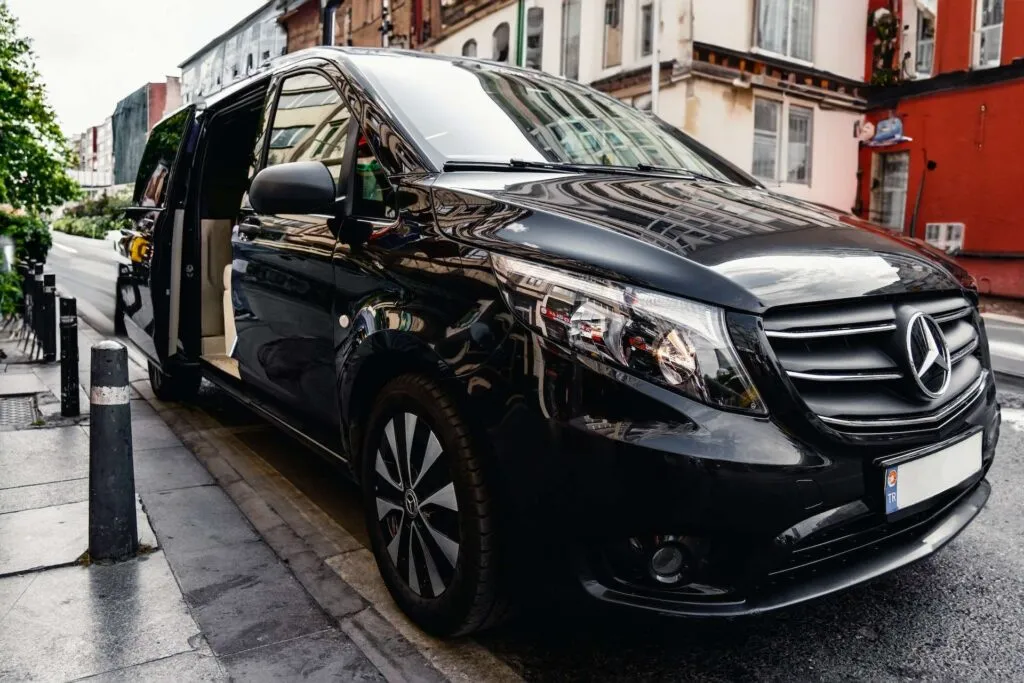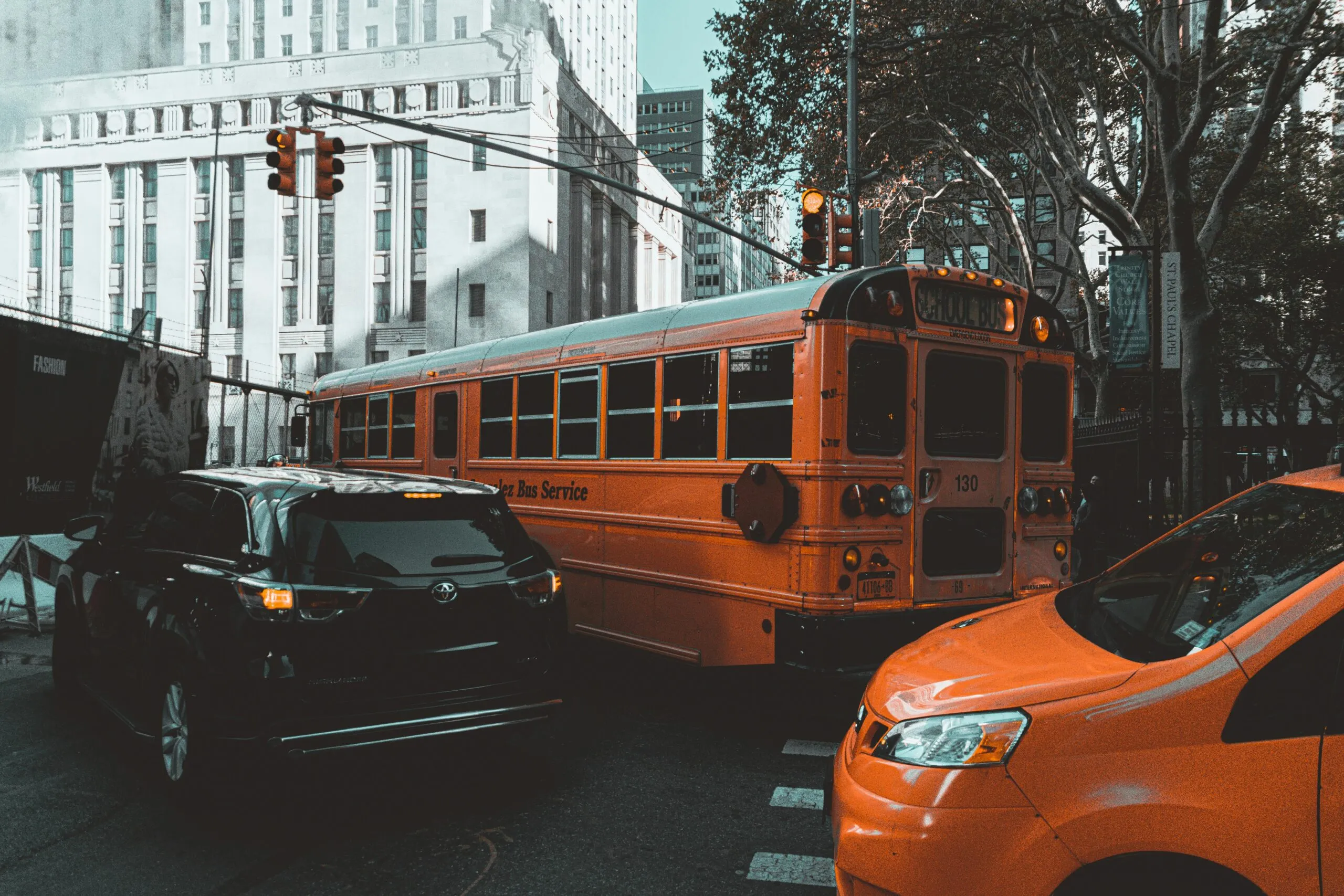Imagine a world without the rumble of buses, the click-clack of trains, or the honking of taxis. Daily commutes would be an impossible feat, deliveries would grind to a halt, and global trade would be a distant dream. This intricate network of services that keeps people, goods, and information flowing seamlessly is what we call a transportation service.
From horse-drawn carriages to high-speed trains, transportation has continuously evolved to meet the demands of a growing global society. Today, a diverse range of options cater to every need, ensuring we can reach our destinations efficiently and comfortably.
Public transportation, the backbone of urban mobility, offers a network of buses, trains, subways, and trams. These services are often the most affordable and environmentally friendly way to travel within a city. The convenience factor is further enhanced by the rise of ticketing apps, allowing passengers to plan trips, purchase tickets, and track their journeys in real-time.
For those seeking a more personalized experience, private transportation services come into play. Taxis and ride-hailing services like Uber and Lyft provide door-to-door convenience with a tap of a button. Car rentals offer ultimate flexibility, allowing individuals to explore at their own pace.
Beyond daily commutes, specialized transportation services cater to specific needs. Airport shuttles whisk travelers to and from their flights, while limousines provide a touch of luxury for special occasions. Additionally, non-emergency medical transport services ensure timely and safe medical care for those who require assistance.
Choosing the right transportation service depends on several factors. Cost is a primary consideration, with public transport generally being the most economical option. Convenience factors like travel time, availability, and ease of booking also play a crucial role. Accessibility for people with disabilities is paramount, and many transportation services are now equipped to cater to their specific needs.
Safety and security are of utmost importance. Background checks for drivers, regular vehicle maintenance, and passenger safety features are essential aspects to consider.
The future of transportation services is brimming with exciting possibilities. Self-driving cars, once a futuristic concept, are rapidly becoming a reality, promising to revolutionize the way we travel. Electric vehicles are gaining traction due to their environmental benefits, contributing to a more sustainable future. Hyperloop technology, with its potential for ultra-fast travel, could redefine the way we move across vast distances.
Sustainability is a key focus area for the transportation industry. Governments and businesses are actively promoting the use of electric vehicles and investing in renewable energy sources to power public transportation systems. This shift towards eco-friendly options is crucial for mitigating the environmental impact of the transportation sector.
In conclusion, transportation services are the lifeblood of our globalized world. They connect communities, facilitate trade, and enable us to experience the world around us. As technology continues to evolve and sustainability concerns take center stage, the future of transportation promises to be a landscape of innovation and efficiency. From the ubiquitous public bus to the sleek self-driving car, transportation services will continue to adapt and transform, ensuring we reach our destinations safely, conveniently, and responsibly.
Urban Caffeine
Navigating the Maze: A Guide to Diverse Transportation Services
Imagine yourself in a bustling city, the morning sun painting the sky gold. You need to reach an important meeting across town, but navigating the traffic seems daunting. This is where the intricate web of transportation services comes to your rescue. From the iconic yellow cab to the sleek subway train, these services offer a multitude of options to get you where you need to be, efficiently and conveniently.
Public Transportation: The Eco-Friendly and Affordable Backbone
Buses: The workhorses of urban mobility, buses offer extensive route coverage at a fraction of the cost of private transportation. Modern buses are often equipped with Wi-Fi, comfortable seating, and improved accessibility features, making your journey a breeze.
Trains: A reliable and efficient option, trains connect major cities and towns, offering a comfortable and scenic travel experience. High-speed rail networks are revolutionizing travel times, making long-distance commutes significantly faster.
Subways and Trams: These underground or surface electric rail systems are the lifeline of densely populated areas. They offer frequent service, minimal traffic delays, and a significant reduction in carbon footprint compared to private vehicles.
Ticketing Systems and Apps: Convenience at Your Fingertips
Gone are the days of waiting in long queues for tickets. Today, a plethora of mobile apps allows you to plan your journey, purchase tickets, and even track your ride in real-time. These user-friendly interfaces make navigating public transportation systems a seamless experience.
Private Transportation: Personalized Options for Every Need
Taxis: The quintessential symbol of urban transportation, taxis offer door-to-door service and are readily available in most cities. Hailing a taxi or booking one through a ride-hailing app ensures a convenient and hassle-free commute, especially during late hours.
Ride-hailing Services: These app-based services like Uber and Lyft have disrupted the traditional taxi market. Offering competitive fares, real-time tracking, and driver information, they provide a convenient and often more affordable alternative to taxis.
Car Rentals: For those seeking the freedom of the open road, car rentals offer unparalleled flexibility. Choose from a variety of vehicles to suit your needs, explore hidden gems, and create your own travel itinerary.
Specialized Services: Catering to Specific Needs
Airport Shuttles: Taking the stress out of airport commutes, shuttles provide a reliable and comfortable way to get to and from your flight. Pre-booking ensures a smooth transition, especially when traveling with luggage or unfamiliar with the local area.
Limousines: Indulge in a touch of luxury with limousine services. Often used for special occasions, business meetings, or airport transfers, limousines offer spacious interiors, professional chauffeurs, and a touch of elegance to your journey.
Non-Emergency Medical Transport: For individuals requiring medical attention but not experiencing a life-threatening emergency, non-emergency medical transport services provide safe and reliable transportation to hospitals or medical facilities. Trained personnel ensure patient comfort and proper medical care during the journey.
Choosing the Right Service: Factors to Consider
Selecting the most suitable transportation service hinges on several crucial factors:
Cost: Public transportation is generally the most economical option, while private services like taxis and car rentals come at a premium.
Convenience: Factors like travel time, availability, and ease of booking play a significant role. Mobile apps and ticketing systems have significantly improved the convenience factor for many services.
Accessibility: Public transportation systems are increasingly becoming more accessible for people with disabilities, offering features like ramps, elevators, and designated seating areas.
Safety and Security: Background checks for drivers, regular vehicle maintenance, and passenger safety features are paramount considerations, especially for private transportation services.
The Future of Transportation: Embracing Innovation and Sustainability
The transportation landscape is on the cusp of a transformative era. Self-driving cars, once a futuristic concept, are being actively tested and hold immense potential to revolutionize the way we travel. This technology promises increased safety, reduced traffic congestion, and a more personalized travel experience.
Sustainability is a driving force shaping the future of transportation. Electric vehicles are gaining significant traction due to their eco-friendly nature. Governments and businesses are actively promoting the use of electric vehicles and investing in renewable energy sources to power public transportation systems.
Hyperloop technology, a futuristic transportation system involving high-pressure tubes and levitating pods, is another innovation with the potential to redefine long-distance travel. This technology promises ultra-fast travel speeds, significantly reducing travel times between major cities.
In Conclusion: A World on the Move
Transportation services are the arteries of our globalized world. They connect communities, facilitate the movement of goods and services, and enable us to explore the world around us. As technology.

Choosing Your Ride: Essential Factors to Consider in Transportation Services
Navigating the diverse world of transportation services can feel overwhelming. From the iconic red double-decker buses of London to the sleek bullet trains of Japan, each option presents unique advantages. But with so many choices available, selecting the right service requires careful consideration of several key factors.
Cost:
Budget often plays a primary role in deciding your mode of transportation.
Public transportation: Generally the most economical option, public buses, trains, and subways offer fixed fares and often come with monthly passes for frequent travelers.
Private transportation: Taxis and ride-hailing services like Uber and Lyft typically charge per ride, with fares varying based on distance, time of day, and demand. Car rentals come with daily or weekly rates, and additional costs like fuel and insurance need to be factored in.
Specialized services: Airport shuttles often have pre-determined fares, while limousine services may charge hourly rates. Non-emergency medical transport services typically require contacting the service provider directly for a quote.
Convenience:
In today’s fast-paced world, convenience is a major consideration.
Availability: Public transportation systems generally operate on fixed schedules, while ride-hailing services offer on-demand availability.
Travel time: While public transportation can be efficient within cities, factor in potential delays and transfers. Taxis and ride-hailing services offer a more direct route, potentially reducing travel time. Car rentals provide the ultimate flexibility to explore at your own pace.
Ease of booking: Mobile apps have revolutionized the way we access transportation services. Public transportation ticketing apps allow for easy purchase and top-up of travel cards. Ride-hailing apps offer a seamless booking experience, while car rentals can be booked online or directly through rental agencies.
Accessibility:
Ensuring everyone has access to safe and reliable transportation is crucial.
Public transportation systems: Many cities are actively improving accessibility features like ramps, elevators, and designated seating areas for people with disabilities.
Private transportation: Some ride-hailing services offer wheelchair-accessible vehicles, while car rental companies may have a selection of adapted vehicles available.
Safety and Security:
Peace of mind is paramount, especially when choosing private transportation services.
Background checks: Reputable companies conduct thorough background checks on their drivers to ensure passenger safety.
Vehicle maintenance: Regularly serviced and maintained vehicles minimize the risk of breakdowns or accidents.
Passenger safety features: Look for features like seatbelts, airbags, and emergency response systems.
Making an Informed Choice
By carefully considering these factors, you can choose the transportation service that best suits your needs.
For cost-conscious travelers: Public transportation offers the most economical option, especially for frequent commutes within a city.
For those seeking ultimate convenience: Ride-hailing services and car rentals provide flexibility and on-demand availability.
For special occasions or requiring extra comfort: Limousine services cater to those seeking a luxurious travel experience.
For individuals requiring medical transport: Non-emergency medical transport services ensure safe and reliable transportation to healthcare facilities.
Remember:
Research: Explore the different transportation options available in your area, compare fares, and check for any special offers or discounts.
Plan your trip: Consider factors like travel time, potential traffic congestion, and the availability of your chosen service.
Prioritize safety: Choose a service that prioritizes passenger safety through background checks, regular vehicle maintenance, and proper safety features.
By making an informed decision, you can navigate the ever-evolving world of transportation services with confidence, ensuring a safe, convenient, and enjoyable journey.
Transportation: Gearing Up for a Future on the Move
The way we travel is on the cusp of a dramatic transformation. Transportation services, once a realm of buses, trains, and taxis, are embracing a wave of innovation that promises to redefine how we navigate our world.
Emerging Trends: A Glimpse into the Future
Self-Driving Cars: No longer confined to science fiction, self-driving cars are actively being tested by major technology companies and car manufacturers. Equipped with advanced sensors, cameras, and powerful AI software, these autonomous vehicles hold immense potential to revolutionize transportation. Imagine a future where traffic jams become a relic of the past, accidents significantly decrease, and personalized transportation becomes a reality.
Electric Vehicles: The environmental impact of traditional gasoline-powered vehicles has spurred a significant shift towards electric vehicles (EVs). With zero tailpipe emissions, EVs offer a cleaner alternative for personal transportation. Advancements in battery technology are addressing concerns about range anxiety, and the growing network of charging stations is making EVs a more practical choice for everyday commutes.
Hyperloop Technology: This futuristic concept envisions a network of near-vacuum tubes that propel capsules at ultra-fast speeds. Passengers or cargo would board these capsules and travel through the tubes at near-sonic speeds, drastically reducing travel times between major cities. While still in its early stages of development, Hyperloop technology has the potential to disrupt the transportation landscape entirely.
Sustainability: Charting a Greener Course
The transportation sector is a major contributor to global greenhouse gas emissions. To combat climate change and ensure a sustainable future, a significant shift towards eco-friendly transportation options is crucial.
The rise of electric vehicles: As mentioned earlier, EVs are playing a pivotal role in reducing emissions and promoting sustainable transportation. Governments are actively offering incentives for purchasing EVs, and the increasing availability of charging infrastructure is addressing concerns about range limitations.
Electrification of public transportation: Many cities are transitioning their public transportation systems to electric buses and trains. This not only reduces emissions but also improves air quality within urban areas.
Micromobility options: Bicycles, e-scooters, and e-bikes are gaining popularity in urban areas, offering a convenient and eco-friendly way to travel short distances. Additionally, these options help reduce traffic congestion and promote a more active lifestyle.
A Collaborative Effort: Building a Sustainable Future
Transitioning towards a sustainable transportation future requires a collaborative effort from various stakeholders:
Governments: Implementing policies that incentivize the use of EVs, promoting the development of charging infrastructure, and investing in public transportation systems are crucial steps.
Businesses: Investing in research and development of cleaner technologies, adopting sustainable practices within their own operations, and offering eco-friendly transportation options to their employees are essential contributions.
Individuals: Embracing eco-friendly options like carpooling, cycling, walking, and utilizing public transportation whenever possible can significantly contribute to reducing emissions.
Conclusion: Embracing the Change
The future of transportation services is brimming with exciting possibilities. Self-driving cars promise a more efficient and safer travel experience, while electric vehicles and hyperloop technology offer sustainable solutions for a greener future. As we navigate this era of transformation, prioritizing sustainability and adopting eco-friendly practices are collective responsibilities. By embracing innovation and working together, we can ensure a future where our transportation systems are not only efficient and convenient but also environmentally responsible.

The Ever-Evolving Landscape of Transportation Services: A Journey Towards a Connected Future
Imagine a world without the rhythmic rumble of trains, the organized chaos of bustling bus terminals, or the convenience of a taxi ride at your fingertips. Daily commutes would be an insurmountable obstacle, the flow of goods would grind to a halt, and global trade would be a distant dream. Transportation services are the lifeblood of our interconnected world, forming the arteries through which people, goods, and information pulsate.
From the horse-drawn carriages of yesteryear to the high-speed bullet trains of today, transportation has continuously evolved to meet the demands of a growing global population. This intricate network offers a diverse array of options, ensuring we can reach our destinations efficiently, conveniently, and comfortably.
Public transportation systems, the backbone of urban mobility, provide a network of buses, trains, subways, and trams. These services are often the most affordable and environmentally friendly way to travel within a city. The rise of ticketing apps further enhances convenience, allowing passengers to plan trips, purchase tickets, and track their journeys in real-time.
For those seeking a more personalized experience, private transportation services come into play. Taxis and ride-hailing services offer door-to-door convenience with a tap of a button. Car rentals provide the ultimate flexibility, allowing individuals to explore at their own pace.
Beyond daily commutes, specialized services cater to specific needs. Airport shuttles whisk travelers to and from their flights, while limousines provide a touch of luxury for special occasions. Additionally, non-emergency medical transport services ensure timely and safe medical care for those who require assistance.
Choosing the right transportation service hinges on several factors. Cost, convenience, accessibility, and safety are all crucial aspects to consider. Public transportation often proves to be the most economical option, while private services offer varying fare structures. Accessibility features like ramps and designated seating areas are becoming increasingly prominent, ensuring everyone can participate in this mobile ecosystem.
Safety remains paramount. Background checks for drivers, regular vehicle maintenance, and passenger safety features are essential considerations, especially for private transportation services.
The future of transportation services is a canvas painted with the vibrant strokes of innovation. Self-driving cars, once a futuristic concept, are rapidly becoming a reality, promising a future where traffic congestion eases and personalized transportation becomes the norm. Electric vehicles are gaining significant traction due to their environmental benefits, paving the way for a more sustainable future. Hyperloop technology, with its potential for ultra-fast travel, could redefine the way we connect across vast distances.
Sustainability is a central theme in the transportation narrative. Governments and businesses are actively promoting the use of electric vehicles and investing in renewable energy sources to power public transportation systems. This shift towards eco-friendly options is crucial for mitigating the environmental impact of the transportation sector.
In conclusion, transportation services are the cornerstone of a globalized world, enabling the movement of people, goods, and ideas. As technology continues to evolve and sustainability concerns take center stage, the future of transportation promises to be a landscape of innovation and efficiency. From the ubiquitous public bus to the sleek self-driving car, transportation services will continue to adapt and transform, ensuring we reach our destinations safely, conveniently, and responsibly. This ever-evolving industry holds the key to connecting communities, fostering economic growth, and paving the way for a brighter, more sustainable future.


